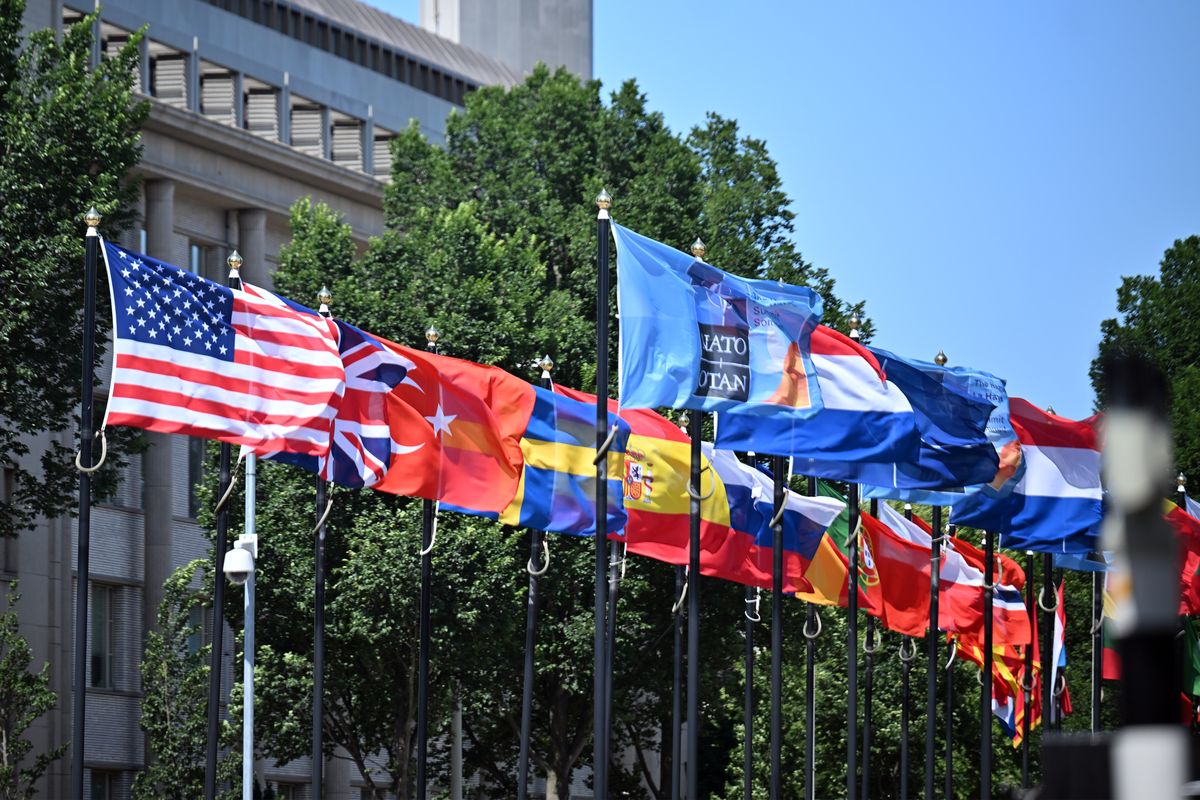U.S. President Donald Trump shook the post-war foundation of German foreign policy: its integration into the European Union (EU) and NATO. By questioning Pax Americana and trying to divide and conquer Europe, Trump has been forcing European – and particularly German – leaders to stand up for their vital interests.
Discussions about fair burden sharing in defense are nothing new; in fact, they are as old as NATO itself. Nowadays, however, U.S. complaints are more forceful. Trump’s predecessor, President Barack Obama, in his speech at the foot of Berlin’s Victory Column in 2008, described NATO as outdated if it could not adjust to new challenges. There were constant attempts during the Obama presidency to reach an agreement on how to face global challenges together.
Now, with Trump at the helm, the U.S. president has taken an extreme stance by declaring NATO “obsolete” and questioning the U.S. commitment to mutual defense. Secretary of Defense General James Mattis tried to calm European concerns at the Munich Security Conference in February. Nevertheless, Mattis amplified his commander-in-chief’s message by giving European allies a thinly veiled ultimatum: Either Europe does more for the alliance, or the U.S. reduces its security posture.
Europeans need not only to spend more on defense, but also to coordinate these expenditures better in order to be able to defend themselves on their own if need be. After Brexit, Germany and France, in particular, will need to play a central role in a European defense system that is able to make decisions and act potentially without the United States.
To be sure, U.S. allies in Europe may buy the new U.S. administration’s goodwill by spending more on their defense and investing in U.S. military technology. Still, the Europeans need to be prepared to act alone.
Trump’s own instincts, and many of his close advisers, challenge the established view of a liberal world order. He does not see the wisdom of liberal hegemony – that is, that by broadening its interest and providing public goods like security, free trade, and a stable currency, America’s allies had strong incentives to follow its lead, which meant the United States created a stable world order that reflected both American values and protected its interests.
Trump’s zero-sum thinking, on the other hand, leads him to believe that America can only win by forcing others – like Europe – to lose.
In future relations with the United States, Europe has to plan for a number of contingencies. The best case scenario would see a U.S. administration that only puts pressure on the Europeans in the security realm to spend more on defense. The worst case scenario would be an attempt on the part of the new U.S. administration to divide Europe in order to weaken a trade and monetary competitor.
Germany and France need to lead Europe to protect itself and the liberal world order from Donald Trump and other illiberal strongmen.













